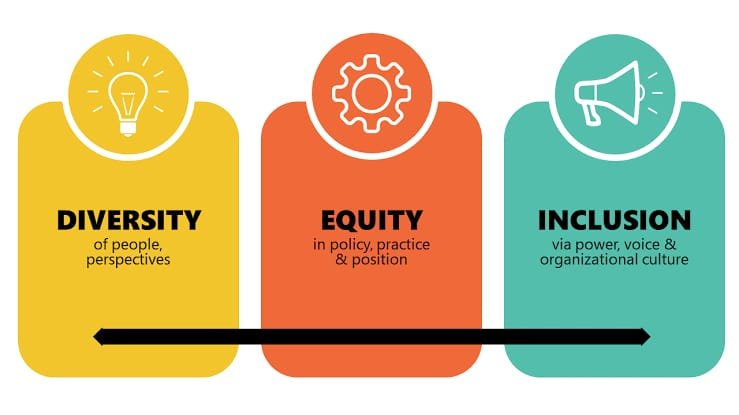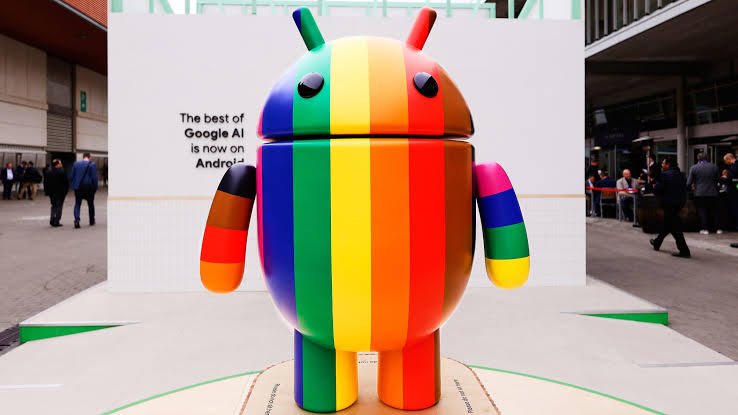Introduction
Google, one of the world’s leading technology giants, is undergoing a significant transformation in its diversity, equity, and inclusion (DEI) policies. The company is stepping back from its previous hiring goals aimed at increasing representation from underrepresented groups. According to a report by Reuters, Google-parent Alphabet’s Chief People Officer, Fiona Cicconi, announced in an internal memo that the company will no longer set aspirational hiring targets. This shift comes as Google reassesses its DEI initiatives in light of federal guidelines and court decisions.

Google’s Initial DEI Commitments
In 2020, following the global Black Lives Matter movement and growing calls for corporate accountability in racial and social justice, Google pledged to enhance its workforce diversity. The company aimed to expand representation by growing its offices outside of traditional tech hubs like California and New York. This commitment was part of a broader effort to build a more inclusive workplace and address long-standing disparities in the tech industry.
Google’s diversity reports in recent years have highlighted incremental progress in hiring Black, Hispanic, and other underrepresented employees. The company invested in programs to support minority talent, launched mentorship initiatives, and implemented bias training for employees. However, these efforts have now been called into question as Google revisits its DEI strategy.
Why Is Google Changing Its DEI Approach?
Several factors appear to have contributed to Google’s decision to reevaluate its DEI initiatives. These include:
1. Federal Guidelines and Legal Challenges
Under the Trump administration, several executive orders and legal rulings sought to curtail DEI efforts, particularly in federal contracting. As a federal contractor, Google must comply with these regulations. Cicconi noted in her memo that Google’s teams are reviewing their DEI programs to align with recent court decisions and U.S. executive orders. The Supreme Court’s decision to strike down affirmative action in college admissions has also raised concerns about race-conscious hiring policies in corporate America.
2. Shifting Corporate Priorities
The tech industry has faced significant layoffs and restructuring in the past two years. As companies navigate economic uncertainty, many have refocused on core business objectives, leading to cost-cutting measures. Google’s decision to discontinue its hiring targets for underrepresented groups may be part of a broader strategy to streamline operations while avoiding potential legal liabilities.
3. DEI Backlash and Political Climate
DEI initiatives have faced increasing pushback from conservative groups and lawmakers who argue that such policies amount to “reverse discrimination.” Some critics have called for the elimination of race-based hiring goals, claiming that they undermine meritocracy. In this context, Google may be adjusting its DEI strategy to avoid potential political and legal challenges.
What Does This Mean for Google’s Workforce?
Despite these changes, Google has reaffirmed its commitment to fostering an inclusive workplace. The company will continue to support internal employee resource groups (ERGs) such as:

- Trans at Google – A network for transgender and non-binary employees.
- Black Googler Network – A support group for Black employees.
- Disability Alliance – A community advocating for employees with disabilities.
These groups play a critical role in shaping company policies and influencing product development to be more inclusive. Google’s stance suggests that while hiring goals may no longer be a priority, fostering an inclusive company culture remains essential.
The Future of DEI in Tech Companies
Google’s shift in DEI strategy raises broader questions about the future of diversity initiatives in the tech industry. Several key trends are emerging:
1. Compliance Over Proactive DEI Measures
With increasing legal scrutiny, companies may prioritize compliance-based diversity efforts rather than ambitious hiring targets. This means focusing on ensuring equal opportunity without setting specific numerical goals for underrepresented hires.
2. Focus on Inclusion Over Representation
Companies may shift their DEI efforts from aggressive hiring quotas to fostering an inclusive workplace culture. This could involve:
- Enhancing mentorship and sponsorship programs.
- Strengthening employee resource groups.
- Addressing pay equity and career advancement barriers.
3. Decentralized DEI Efforts
Rather than top-down mandates, companies may allow individual departments or teams to drive DEI efforts based on specific needs. This approach enables flexibility while ensuring that diversity remains a consideration in hiring and workplace policies.
4. Continued Investment in DEI Training
Bias training, inclusive leadership programs, and employee development initiatives will remain critical components of corporate DEI strategies. Even if hiring targets are removed, companies will likely continue efforts to reduce workplace discrimination and create equal opportunities for all employees.

Industry Reactions and Implications
Google’s decision has sparked debate within the tech industry. Supporters argue that removing hiring quotas prevents unfair advantages based on race or gender, ensuring that merit remains the key hiring criterion. Critics, however, fear that this move signals a retreat from corporate commitments to address systemic inequalities in tech.
Other major tech companies, including Microsoft, Apple, and Amazon, are closely watching Google’s approach. If this shift leads to legal challenges or public backlash, it may influence how other corporations handle their DEI commitments in the future.
Conclusion
Google’s reevaluation of its DEI initiatives marks a significant turning point in the tech industry’s approach to diversity and inclusion. While the company will no longer set hiring targets for underrepresented groups, it remains committed to fostering an inclusive workplace through employee resource groups and policy advocacy. As legal and political landscapes continue to evolve, the future of DEI in tech will likely be shaped by a balance between compliance, corporate values, and workforce expectations.

The coming months will reveal how Google’s decision impacts its diversity efforts and whether other companies follow suit. For now, the tech giant’s shift signals a new era of corporate DEI strategies—one that prioritizes internal culture and legal compliance over ambitious hiring goals.







